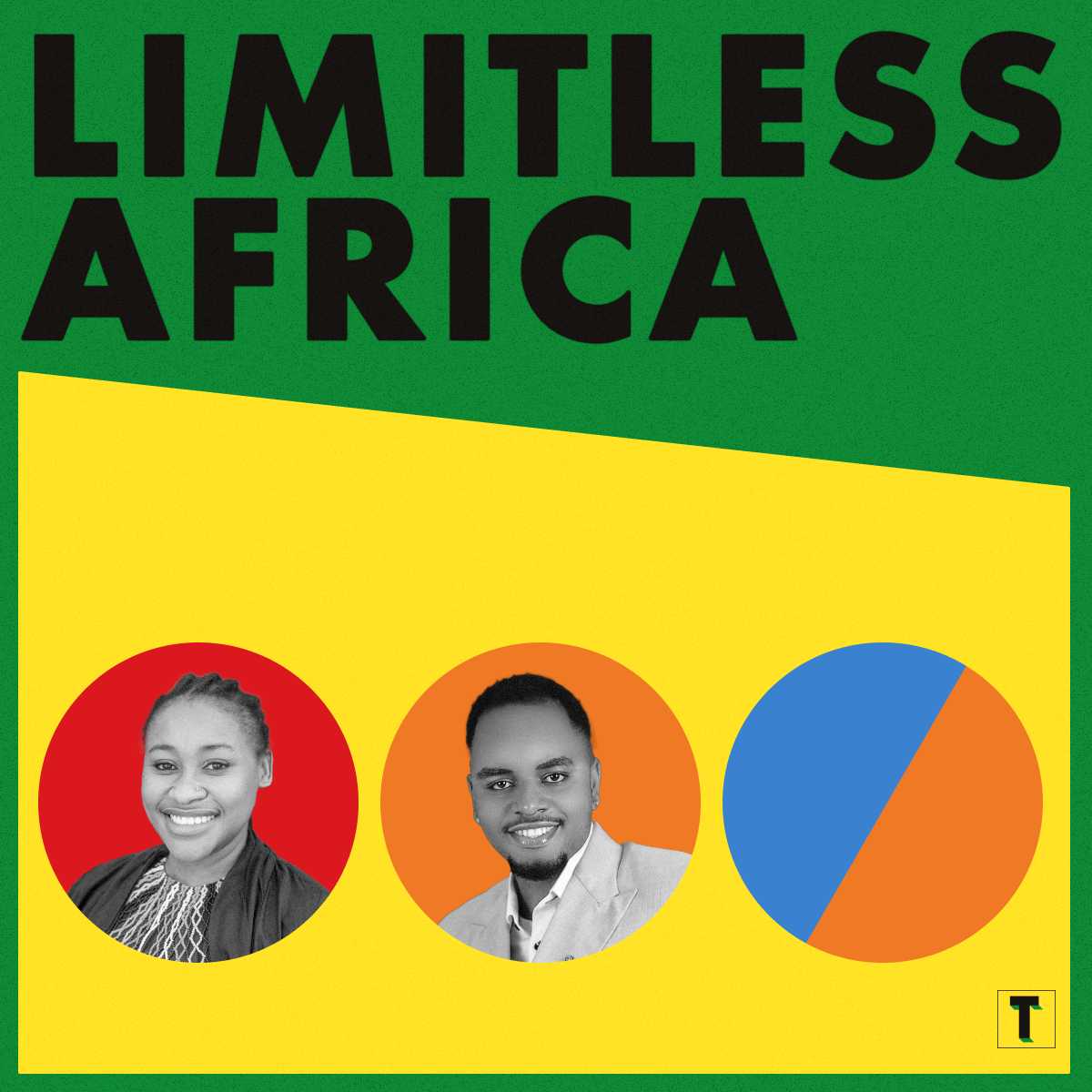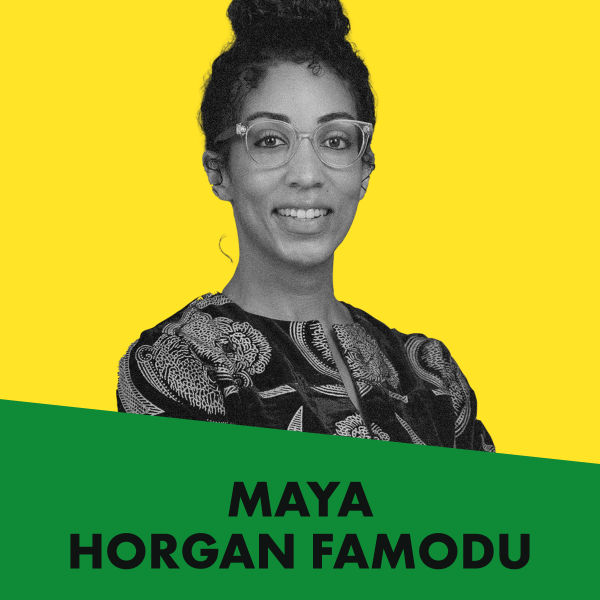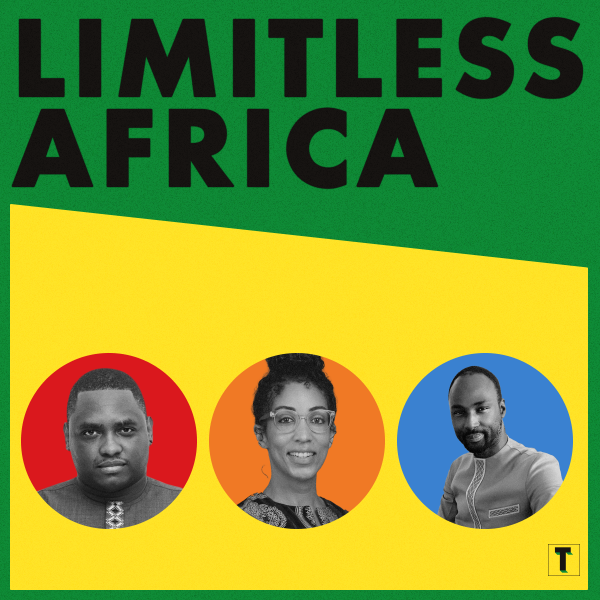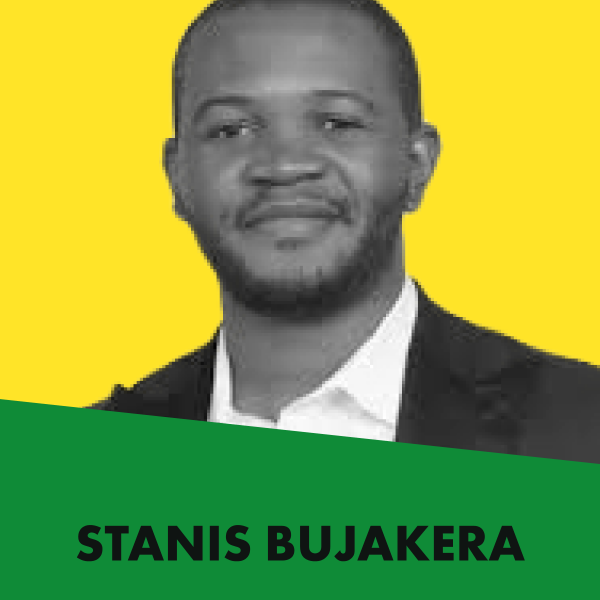Can religion help defend LGBT rights?
With guests Gloria, Thuli Mjwara, Tom Twongyeirwe

Episode notes
LGBT rights are often seen as contradicting religious teachings.
Transcript
How can LGBT activists use religion to defend their rights?
In this episode we talk faith, sexuality and activism
“Who I love is just one part of me”
“Currently, my family are not aware of my sexuality even though they suspect”
“I am in fear for my life”
Claude:
Welcome to Limitless, the podcast that asks the questions that matter for Africa. We’re looking for African solutions to African problems.
In each episode, we’re asking three guests one question that matters to ...
How can LGBT activists use religion to defend their rights?
In this episode we talk faith, sexuality and activism
“Who I love is just one part of me”
“Currently, my family are not aware of my sexuality even though they suspect”
“I am in fear for my life”
Claude:
Welcome to Limitless, the podcast that asks the questions that matter for Africa. We’re looking for African solutions to African problems.
In each episode, we’re asking three guests one question that matters to Africans. And – no surprise – they don’t always agree.
The Limitless Podcast is supported by the U.S. Department of State and the Seenfire Foundation.
Gay and queer people have long been part of African culture. But LGBT rights are often seen as contradicting religious teachings. I talked to three young queer people about how they use faith in their activism.
Thuli Mjwara works at the Inclusive & Affirming Ministries (IAM) in Cape Town, South Africa. This organisation works to make religious communities more accepting of queer people. Here’s our conversation:
Within the work that you do with IAM there is this aspiration that Africa needs what you call an alternative constructive religious voice and you obviously seem to be a woman of faith. How does religion play a role in your activism?
Thuli:
We work with faith institutions so churches, predominantly mainline churches. So these are your churches such as your Anglican, Lutheran, Methodist churches where we work with faith leaders as well as change agents that are allies or who are also queer-identifying, in creating intrusive spaces.
We offer things such as sensitisation trainings; we do research; we assist around policy reformation and if needs be we even go as far as using litigation. We also work in community because we understand that in order to change hearts and minds there’s always a need to have relationships and the use of narratives.
So in communities we work with community leaders. We also work with youth, where people who are LGBTQI share their own narratives and stories. Because people are so used to just zoning into human sexuality around only the sexual act, they are limited in not seeing all the other gifts that a person brings into the space. And a lot of our work is to say actually as queer persons we are more than just who we are dating. We are holistic beings that bring other gifts into the space and when you exclude me, you are depriving yourself of whatever gift I bring into the space.
So a lot of our work is transformative work, in terms of changing attitudes, in terms of opening hearts and minds.
Claude:
And the reality though is that as you know, many Africans specifically Africans of faith are fully and truly convinced that homosexuality is “un-African”. How do you even begin to dialogue with people who have that view when the opinions are so polarized coming into the dialogue?
Thuli:
So when we set up spaces or when we are invited into spaces, we are very upfront that we’re not there to debate. Because, when a person engages in a debate, it’s as if one opinion is either right or wrong or it’s black and white. There is no room for meeting each other halfway.
So in setting up a space around dialogue, you are open to have your belief, I’m open to have my belief, but the only way we can grow and reach and move together as a community is that if we meet each other halfway. Meeting each other halfway also calls on the both of us to risk. And risking means listening to the other’s narratives.
We will use tools, stories, questioning where we get people to question themselves around when was the first time you, what were the lessons that you learned about your body, when you learned about yourself, when you learned about relations, when you learned about who does what around the household… Were these linked to certain bodies? So certain chores – were they linked to only girls or boys?
Once people start seeing that actually this is how this has influenced me, we then go into the bigger broader conversation around human sexuality.
One of the biggest challenges is that often when people think of human sexuality, they only think oh no, we’re here to talk about the gay agenda. And they fail to understand that human sexuality actually includes things like contraception. It includes HIV and Aids. It includes access to health care which affects everybody regardless of sexual orientation and gender identity.
So when we start those conversations, we move from a point of ‘us and them’. But it’s a thing of hey we’re one community; these are the issues that we’re facing. Who I love is just one part of me but these are the bigger issues and how can we move collectively into being one body of Christ.
Claude:
In May 2023, Uganda’s president signed a bill criminalising same sex conduct and introducing the death penalty. Tom Twongyeirwe is a National Coordinator at Universal Coalition of Affirming Africans Uganda and works towards acceptance of LGBT people. He is also a 2023 Obama leader. He told me about himself.
First off, can you tell us about yourself and the work that you do with this organisation called United Coalition of Affirming Africans Uganda it’s ah it’s a bit of a mouthful but please tell us about it and how many people are actually involved in this organization.
Tom:
Thank you very much for having me. My name is Tom Twongyeirwe and I am the co-founder and the national coordinator at the Universal Coalition of Affirming Africans Uganda. Yes I agree. It’s a mouthful but this is a brilliant coalition of faith leaders, people of faith and faith-based institutions who are advancing inclusion of the most marginalized persons in Uganda especially the LGBTQ+ community. We use faith-based approaches to do that.
We were established in 2017 and that was after a realization that faith that is supposed to be preaching love for all and inclusion for all, is actually being used as a justification for hate towards the LGBTQ+ community in Uganda. At the moment we have 67 members from Catholics, Anglicans, Orthodox, Free churches and Muslims.
Claude:
In May last year Uganda adopted the world’s harshest anti LGBTQ+ bill and the death penalty for homosexual acts. How did that affect you and actually how have things changed since that bill?
Tom:
Ah, well, ah, the anti-homosexual act 2023 has affected both my advocacy work myself and everyone who identifies with the LGBTQ+ community but also our allies as well. AHA 2023 for example, like as mentioned criminalizes all people who engage in same-sex relationships and those who are found guilty are liable to life imprisonment. And anyone or any organization advocating for inclusion of the LGBTQ+ community is liable.
I am undeniably now in fear for my life. But for other people’s lives as well. I have been overwhelmed with emergency cases from the LGBTQ+ Community and individuals seeking help like those who are seeking help in terms of shelter because they have been evicted from their rental houses because landlords are also held to be criminals if they are found guilty for just providing shelter to the LGBTQ+individuals.
Those LGBTQ+ people who have been brutally attacked from communities for being gay but also those who are really suffering mental health illnesses for the kind of effects that the anti-homosexuality act is causing to the community.
Claude:
So as part of your organization, you talk to religious leaders. Can you tell us a little bit about?
Tom:
Well, you are right. At the centre of our work is one-on-one dialogues that we conduct with religious leaders from different denominations and at the moment as I mentioned at the beginning we have 67 members who subscribe to the membership of the Universal Coalition of Affirming Africans Uganda.
Our approach to them is always that we do not seek to be understood, but we also seek to understand them. And usually when we attach that humanity sense to our approach to our advocacy, to our dialogues people are more open minded to actually have a conversation with us.
In Uganda but generally in Africa as we are really conservative but ignorant as well. Very few would dare to read and for example, make research as well on the texts that speak about same-sex relationships. They just read what was written in the bible and then leave it there.
But truth be told, if they made some research especially between the original translations of the bible and religious texts and then the current modern translations, they would identify they’re different. So we read these texts, we explain it to them and we build their capacity in terms of how actually that interpretation should be.
Claude:
Gloria – and I can’t give you her surname due to security issues – is a human rights defender and a feminist working for the sexual and gender minority communities in Ghana. Ghana is in the process of adopting extremely harsh LGBT laws which criminalise gay people and those that do not report them to the authorities. She is extremely brave to be speaking to us.
Gloria:
I come from a Christian family. I was born into the Methodist Church. Yes. And then unfortunately, my mother is late so I stayed with my father and my siblings. But recently, I had to move out because I had security issues concerning my sexuality.
So I’m currently living alone at a small safer space. My family I’m not aware of my sexuality even though they suspect, and because of that, it gave me great concern that made me move to move out of the house temporarily to see how the situation is going to be like,
Claude:
Tell me about your activism
Gloria:
Currently, I have a small community that I engage with, basically what I do over there is to empower them. I teach them how to stay safe and in the light of what is happening, they get to understand some of the contents in the bill. Notwithstanding, I also include women issues, including women’s health, abuses that they go through, as well as some safety tips and how to stay safe.
Claude:
Tell us about the bill
Gloria:
Currently the bill has been in Parliament since July 2021. It was a private member’s bill that was introduced just recently, that was last month, parliament passed the bill. It’s called the Promotion of Proper Human Family Values Bill 2021. Right. But then it’s also tagged as the anti LGBT bill because it targets the LGBT community, that is what the Proponents claim, but then the content of the bill actually targets everybody who identifies as a Ghanaian, because at the end of the day, persons who know queer persons and refuse to report them are liable to be arrested and sent to jail for up to three years. That’s how serious it is.
It is also affecting advocacy work. That means that we cannot advocate for the rights of these marginalised groups anymore, which in turn affects donor funding.
So right now, our work has been very limited to only virtual assistance now, because we know the President hasn’t assented to it. We have community members and traditional leaders, and we also have the Christian and Muslim leadership councils, who are continuing to send out hate speeches to these societies for them to know or to see queer persons as evil and as people not fit to be in community. So you either choose conversion therapy, or you will be sent to jail. So that is how serious the bill has become now.
It’s quite difficult to find some queer people who are known to be queer in the community, you know, being themselves because why? They are scared as well because even though the President hasn’t assented to the bill, the kind of view that society has against them has now become more of hate than of law. It has become more of intolerance than acceptance.
Claude:
Thank you to all our guests for sharing their stories. It’s not easy. Please share this episode with anyone who may need support.
Listen next
"It wasn't just an overnight thing. Seeds were planted."
With guests: Maya Horgan Famodu
LISTEN NOW 55 min
How did I make my first million?
With guests: Maya Horgan Famodu, Moulaye Taboure, Moutagna Keita
LISTEN NOW 15 min








